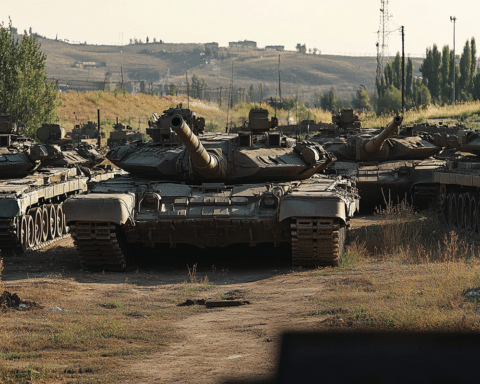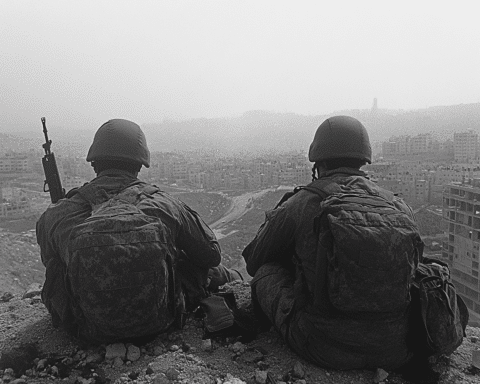As tensions rise in the Middle East, Israel is gearing up for a possible ground operation in Lebanon. Hezbollah has launched a barrage of rockets, including one aimed at Tel Aviv, marking the deepest strike by the militant group to date. Israel’s response has been swift, with airstrikes targeting Hezbollah strongholds, while its military chief has signaled the potential for a broader conflict.
Hezbollah’s Rocket Barrage Sparks Widespread Destruction
In recent days, Hezbollah has intensified its rocket attacks on northern Israel, causing destruction and fear across the region. Lt. Gen. Herzi Halevi, Chief of Staff of the Israeli Defense Forces, addressed troops on the north border, saying the airstrikes were meant to “prepare the ground for your possible entry and to continue degrading Hezbollah.” The militant group’s actions have drawn a sharp response, with Israel striking over 280 Hezbollah targets. According to Halevi, “Today, Hezbollah expanded its range of fire, and later today, they will receive a very strong response.”
International Calls for Cease-Fire Amid Escalation
In the wake of the escalating violence, international allies like the U.S. and France have called for an immediate 21-day cease-fire. Their joint statement, signed by various nations, including Japan, Saudi Arabia, and the European Union, warned that the fighting presents an “unacceptable risk of broader regional escalation.” The statement also urged for diplomatic solutions to halt the violence that has already claimed over 600 lives, with more than 2,000 wounded.
Hezbollah’s Strikes Reach Central Israel
The situation intensified when Hezbollah launched a missile targeting Tel Aviv, an unprecedented strike. Israeli military spokesman Lt. Col. Nadav Shoshani downplayed Hezbollah’s claim of targeting the Mossad headquarters, labeling it “psychological warfare.” However, the fact remains that it was the first time a projectile fired from Lebanon reached central Israel. While Israel intercepted the missile, tensions continued to rise, with both sides preparing for further conflict.
Displacement and Humanitarian Crisis in Lebanon
The ongoing conflict has displaced tens of thousands of people on both sides of the border. The United Nations estimates that more than 90,000 people have been forced to flee their homes due to Israeli airstrikes. Lebanon’s health ministry reported that 72 people were killed on Wednesday alone, bringing the total death toll to 636. Soumaya Moussawi, a survivor of an airstrike, recounted her experience: “Then suddenly it hit next to us. We were all thrown in different directions.” The humanitarian crisis is worsening, with families fleeing to Beirut and Sidon, seeking refuge in shelters and cars.
Israel’s Military Strategy and Future Plans
Israel has signaled the possibility of a ground invasion, with Halevi’s comments suggesting a more assertive military response may be imminent. The mobilization of two reserve brigades for missions in the north is further evidence of Israel’s readiness to escalate the conflict if necessary. Israel’s U.N. Ambassador Danny Danon stated that while Israel welcomes efforts to broker a cease-fire, it is prepared to “use all means at our disposal, by international law,” should diplomacy fail to stop Hezbollah’s rocket attacks.
The conflict between Israel and Hezbollah continues to spiral, with no clear end in sight. Both sides are preparing for further escalation, and international efforts for a cease-fire remain tenuous. As the humanitarian toll rises, the hope for peace grows slimmer, but Israel remains committed to defending its citizens. The situation remains highly volatile, with the world watching closely.




